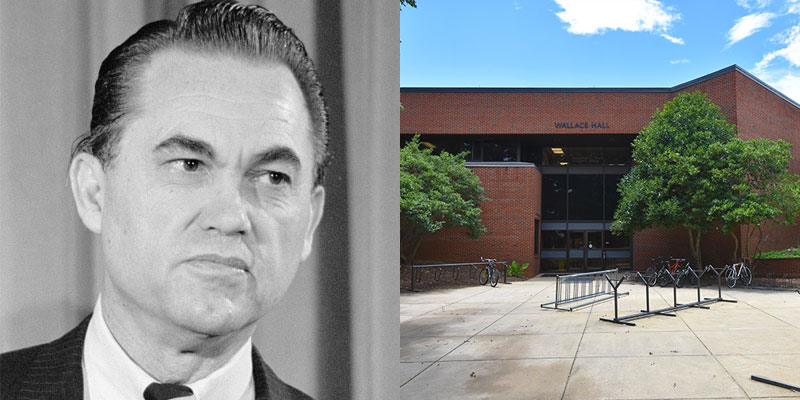These last few weeks have riveted the country’s attention on police brutality. The murder of George Floyd was an atrocity, and unfortunately it’s not the first one. As we have so often in our history, it’s time for America to respond with appropriate and reasonable reform. It’s not time to lose our heads, however.
The “defund the police” movement is not the answer. My colleagues Rep. James Clyburn of South Carolina, Rep. Bennie Thompson of Mississippi, and Delegate Eleanor Holmes Norton of the District of Columbia, all members of the Congressional Black Caucus, spoke out against it last week. Ms. Norton said that the poorest of the people she represents live in the parts of town that experience the most homicides and crime. “I’m not sure I would hear them saying we ought to reduce the number of police, I may hear them saying just the opposite,” she said.
Neither does it make sense to paint all of law enforcement with a broad and negative brush. We all need law enforcement and we are blessed that the vast majority of our officers are good professionals, often doing their jobs under dangerous circumstances. Last year, 89 officers died in the line of duty in the U.S. Many more were injured. Most of us don’t work in a job where it is unclear whether we will return home at the end of the day safe and sound. But they do.
It is undeniable, however, that there are rogue officers treating black people unprofessionally, injuring and, yes, even killing them. That’s not acceptable. We need to make reforms to our law enforcement system, and some of those reforms will indeed cost more, not less, money.
This issue is primarily a local one as that is where most law enforcement officers work. Better and stricter standards, better training on those standards, and better discipline of officers who act outside those standards, all must occur locally.
There are some things we can do at the federal level, however, and there are a number of recent proposals. I believe there is a significant level of concern across both parties and enough consensus around some of the proposals that we should be able to pass a bill which is broadly bipartisan. The fact that the Democrats filed their bill with no effort to consult and work with Republicans, indeed against direct appeals to include us, is very disappointing, but we can’t let that stop us from finding common ground, without which there will be no change in the law.
We are presently scheduled to vote on a police reform bill next week, and while the Democrats have filed this purely partisan bill, I hope there will be a real opportunity for dialogue.
I support a federal ban on lynching, and we should condition federal grants to local law enforcement on adherence to higher standards, particularly on the use of force. More federal money should go for training to these higher standards. We need to collect and report more and timely information on the use of force and more Federal money should go to pay for body cameras. We should ban racial profiling but do it in such a manner that the ban wouldn’t preclude the appropriate use of information about specific suspects or specific crimes.
I’m open to discussing some reform to the legal doctrine of “qualified immunity” which shields law enforcement officers from legal action when they are acting in the line of duty. The doctrine needs more clarity which a well-drawn statute could bring. But I oppose outright repeal because that would leave officers who have acted appropriately the subjects of endless lawsuits which would likely result in these officers pulling back from doing their jobs.
For this same reason I am concerned about lowering the standard for criminal actions against law enforcement under the Civil Rights statutes. Presently, prosecutions against law enforcement officers require proof that the officer acted “willfully,” but some of the new proposals would lower that to proof of “reckless disregard.” Go look at the legal definition of the latter and it will leave you scratching your head as to what the courts mean. You don’t want a law enforcement officer in the middle of a violent situation, where he is present to protect innocent lives, to be scratching his head. If we are going to change that standard at all it needs to be very clear and precise.
Go back to what Ms. Norton said. Who is going to be harmed the most if law enforcement pulls back, if they retreat from their duty? It’s the poor, who are all too often the victims of crime and are also likely to be from a racial minority.
Let’s say it plainly. Black people are of equal moral value as white people. It’s Biblical, it’s American. And to treat people differently based on their race is morally and legally repugnant. To injure or kill them for the same reason goes against everything we stand for.
We are Americans, black, white, Asian and Hispanic. We are liberals and conservatives, Democrats and Republicans, and everything in between. All of us are the beneficiaries of the American system of justice, however imperfect it may seem, because it’s the ultimate expression of civilization. Due process, the equal application of the law, limits on the power of the state (that includes law enforcement), and the basic principles and of our common humanity underly this system.
We stand with one another. With black people wronged by rogue law enforcement officers. With the vast majority of law enforcement who throw themselves at danger to protect us and conduct themselves with professionalism and with little pay.
And we should do all this using, not losing, our heads.
U.S. Rep. Bradley Byrne is a Republican from Fairhope.













